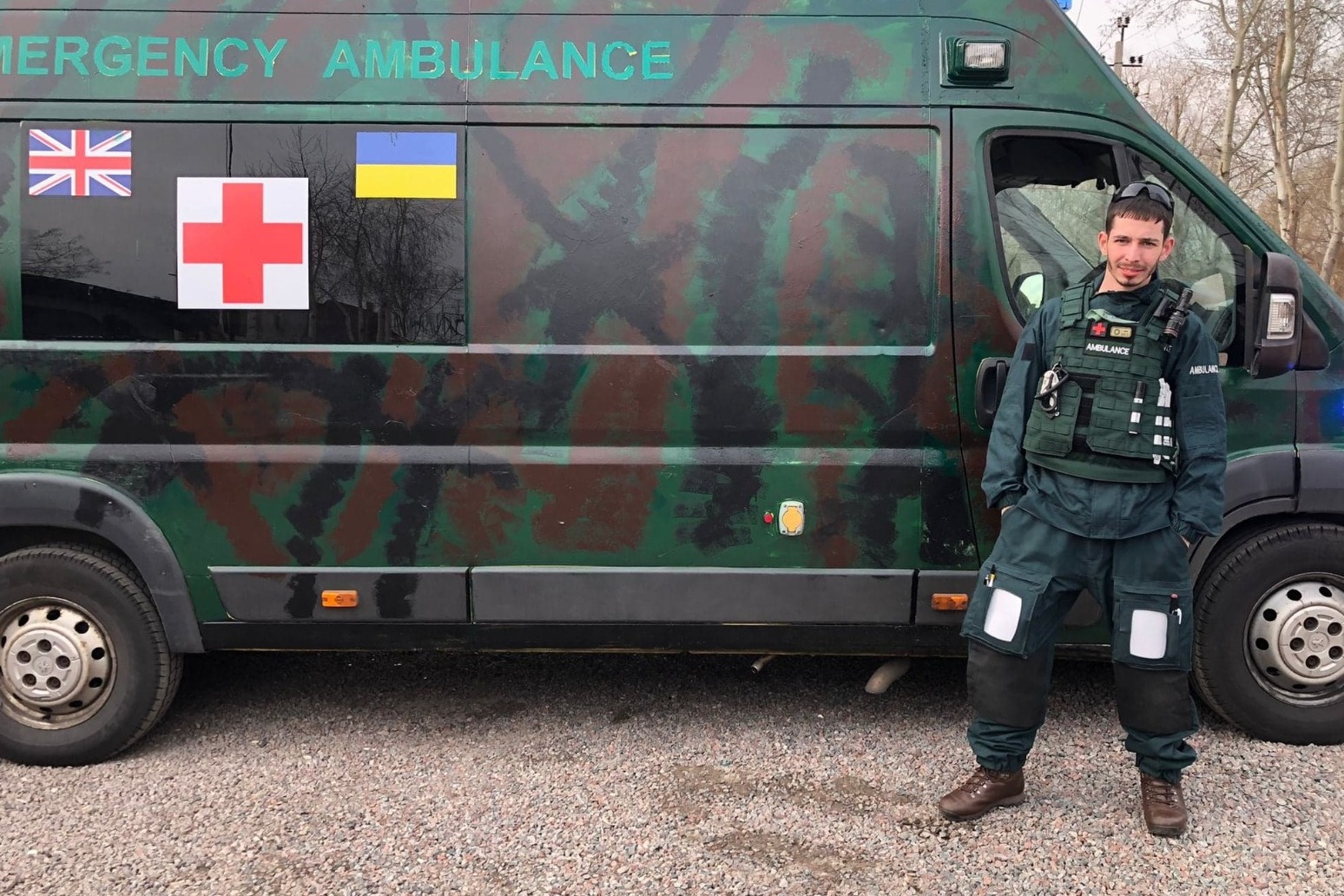
British medic on Ukraine front line: It’s the stupidest and best thing I’ve done
A British medic who is on the front line in Ukraine has described his decision to join the resistance effort as the “stupidest” and the “best” thing he has ever done.
Emergency care assistant Conor Braithwaite, 23, arrived in Kyiv with a friend – a former army medic – to deliver medical supplies shortly after the Russian invasion began.
While in Kyiv he helped to set up field hospitals, before heading east with two regular units and one volunteer unit.
“It’s probably the most stupidest thing I’ve done but it’s been the best thing,” Mr Braithwaite, from Wimbledon in London, told the PA news agency.
“I’ve learned so much, I’ve learned a new culture.
“These people are amazing, and they’re very humble and accepting.”
On his journey east, he said, they went through Bucha, site of an apparent massacre by of Ukrainian civilians by Russian troops, and saw “all the people dead in the street”.
Now Mr Braithwaite and his friend are “directly on the front line” and, while he did not reveal his exact location, he described it as “very, very hot”.
He stressed he was not there as a combatant, purely as a medic.
Nonetheless, with nearby shelling audible as he spoke, he said he “absolutely” fears for his safety.
“We’ve been on the front line for the last four weeks and, unfortunately, it’s one of those things,” he said.
“We’re the only medical people here.
“It’s very hard. We’ve earned the trust of these guys and we’ve saved many of their lives and we continue to try and do that.
“Unfortunately, some people I can’t fix. I can’t fix them when they’ve got half their face blown off or their stomach.”
He described daily life on the front line as “draining”.
“A normal day is probably not sleeping very much, constant artillery, having to get up because there’s casualties,” he said.
Back home his family are “super proud” but concerned.
Mother Virginia Dady-Braithwaite, 58, told PA: “I think it’s really heroic what he’s doing, you know, we’ve got the utmost respect and admiration, however, I think he needs to come home now.”
His experiences in Ukraine come after what she described as a “difficult period” for him working as a first responder during the Covid pandemic, which began when he was 21.
“That was a humongous amount of pressure on him and it does take its toll,” Mrs Dady-Braithwaite, who works for the London Ambulance Service, said.
When her son first went to Ukraine, she said, they were only expecting him to be gone for a couple of weeks but “it’s just gone on and on”.
And she is concerned that the longer he stays there, the worse the danger will get.
“He needs to come home,” she said. “It’s not not our battle.
“And, you know, he’s a young man, and he’s got his whole life ahead of him.”
But Mr Braithwaite said he did not think he would be leaving any time soon.
He said: “I can’t see me being able to leave these people with no sort of medical cover – they don’t have the basic skills.
“I’m trying to train them up, but it’s very difficult when you’re under sustained fire.”
Asked what people back in the UK should know about the invasion, he said: “It’s not over.
“I think everyone’s everyone thinks it’s all over, it’s all died down – it hasn’t. We’re still struggling on trauma supplies and stuff like that.”
He said the right kind of supplies are not getting through.
“A lot of people keep sending out stuff like clothes – it’s not what they need,” he said.
“They need medical supplies – and not just like bandages and plasters, we’re on about specialist trauma equipment, and four-by-four capabilities and ambulances.”
Published: by Radio NewsHub